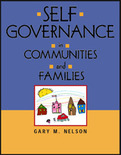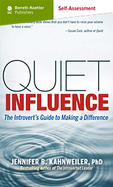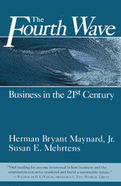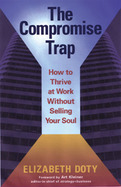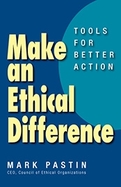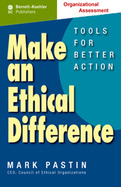We are entering the 21st century in a period of great uncertainty and change. People are wary of government and have lost confidence in social institutions-from social welfare and schools to healthcare programs. That loss of confidence has undermined the community and family life that is the very foundation of our society. Self-Governance in Communities and Families shows how individuals can reconnect to and revitalize their social institutions so that they are effective in serving the needs of all.
Gary Nelson identifies the existing social models we are moving away from and explores the new, emerging pattern of relationships we are shifting to in our social institutions. He reveals why open dialogue and partnerships between people and their social institutions are essential to the well-being of families and thriving communities. He describes why social regeneration is best pursued through these partnerships, with people and stakeholders within communities taking positive action to develop and protect the well-being of their families and the health of their communities.
Applying both business and social science concepts to the day-to-day management of social institutions, Nelson offers a proven, practical method-community self-governance dialogues-for engaging people in the redesign and revitalization of social institutions. The author shows how-by creating opportunities for individuals and families to proactively participate in developing a strategic plan for how their institutions are managed, run, and evaluated-this dialogue method ultimately empowers people to take control of their own lives. He also reveals how active participation in these open dialogues ignites creative ideas and new energy for the redirection and reshaping of those institutions.
With numerous examples and anecdotes, Nelson illustrates the values, beliefs, and principles that underlie how we learn and make decisions in a self-governing democratic culture. He provides tips for shared learning and accountability, ownership and governance, and the creation of a culture of self-governance. And he offers advice on how to maintain an ongoing engagement and partnership between the public and its social institutions.
Communities and families can be strengthened when each of us takes responsibility for ourselves and works in partnership with others to restore our social institutions. Self-Governance in Communities and Families sets forth clear, doable strategies for fostering both responsibility and ownership through dialogue and collaboration between public and private sectors.
- Provides community leaders and others with a framework for bringing all parts of a community and the "system" together around the common purpose of strengthening communities and families
- Outlines a philosophy of self-governance and empowerment for at-risk families, individuals, and neighborhood communities
- Offers managers a dynamic, adaptive model for opening up, supporting, and steering the process of social change
Product: Online streamed self-assessment application (not downloaded), limited one-year subscription (5 tests or 12 months, whichever comes first), password controlled, view past results to track progress.
Duration: 18 questions covering six related topics rated 1 to 5 with 1 as 'Never' and 5 as 'Almost Always.' The self-assessment takes 5-10 minutes to answer.
Results: The bar graph and score chart shows overall results and specific results in the six related topics. The results include interpretation from author, next steps, follow-up questions to consider based on scores, author's closing statement, and print option.
BASED ON THE BOOK:
- The first book to identify six unique strengths that can make introverts powerful influencers
- Includes quizzes, exercises, and worksheets for putting quiet influencer methods into practice on a daily basis
- Features interviews with and examples of real-life quiet influencers
Introverts may feel powerless in a world where extroverts seem to rule, but there's more than one way to have some sway. As Jennifer Kahnweiler proves in this much-needed book, introverts can be highly effective influencers when, instead of trying to act like extroverts, they use their natural strengths. Kahnweiler shows how you can use those strengths to challenge the status quo, provoke new ways of thinking, effect change, and inspire others to move forward.
Kahnweiler identifies six unique strengths introverts have:
- Taking Quiet Time: The periods of solitude that introverts crave provide them with a powerful source of creativity and self-awareness.
- Preparation: Careful preparation, which makes introverts feel more comfortable, also makes them very knowledgeable and able to anticipate objections.
- Writing: Introverts' preference for writing over speaking enables them to influence others through deep, authentic, well-developed arguments.
- Engaged Listening: Introverts are great listeners-they'd rather listen than talk-which is a crucial skill for establishing rapport and mutual understanding.
- Focused Conversation: Introverts don't like small talk, but they excel at the serious, purpose-driven, one-on-one interactions vital for winning people over.
- Thoughtful Use of Social Media: Oversharing doesn't appeal to introverts online any more than it does offline, so they naturally use social media in a thoughtful, and more effective, way.
Kahnweiler includes a Quiet Influence Quotient quiz to measure how well you're using these six strengths now. Then, through questions, tools, exercises, and real-world examples, she helps you increase your mastery of these strengths. Quiet Influence is the must-have guide to deeper insight and greater impact that introverts have been waiting for and that extroverts can learn from.
PURCHASER AND USER NOTE: If you are an individual consumer newly purchasing the assessment, go directly to the shopping cart by clicking the "add to cart" icon to your left. If you are a member of an organization that has purchased a bulk order, or if you already bought the assessment in the last 12 months and are retaking it now using the original Access Key to retake the assessment please log in here. New registrants: Please enter your "Access Key" into the input field to enter the self-assessment for the first time. A note to frequent purchasers: You cannot use your current bkconnection.com password for this product; you must create and use a new password. For any questions, please contact the support desk at 800-929-2929 (8 am-9 pm Eastern U.S. time, Monday through Friday), or [email protected]. Thank you.
1996
Applying the concept of historical waves originally propounded by Alvin Toffler in The Third Wave, Herman Maynard and Susan Mehrtens look toward the next century and foresee a "fourth wave," an era of integration and responsibility far beyond Toffler's revolutionary description of third-wave postindustrial society. Whether we attain this stage of global well-being, however, will depend on how well our business institutions adapt and change.
The Fourth Wave examines the ways business has changed in the second and third waves and must continue to change in the fourth. The changes concern the basics-how an institution is organized, how it defines wealth, how it relates to surrounding communities, how it responds to environmental needs, and how it takes part in the political process.
Maynard and Mehrtens foresee a radically different future in which business principles, concern for the environment, personal integrity, and spiritual values are integrated. The authors also demonstrate the need for a new kind of leadership-managers and CEOs who embrace an attitude of global stewardship; who define their assets as ideas, information, creativity, and vision; and who strive for seamless boundaries between work and private lives for all employees.
2009
Product: Online streamed self-assessment application (not downloaded), limited one-year subscription (5 tests or 12 months, whichever comes first), password controlled
Duration: 23 questions in five categories: 1) Organizational Ethics Scale, 2) Compliance Scale, 3) Ethical Concerns Scale, 4) Leadership Ethics, 5) Alignment Scale. The self-assessment takes 10-15 minutes to answer.
Results: You will receive a line graph that shows whether the ethical agreement between you and your organization falls above or below a key threshold in the areas listed above. The author also offers detailed interpretation of your results in each of the five areas. By reading your results, you can get important insights on how aligned you are with your organization, and how you can move towards better alignment. There are also opening and closing statements from the author, the ability to compare current and former results, and a print option.
BASED ON THE BOOK, MAKE AN ETHICAL DIFFERENCE. Book summary: We are plagued today by a decline in ethical behavior. Scandals come so thick and fast that any attempt to list them is out of date in weeks if not days. But ethics isn't just a matter of headlines; it's a part of everyone's life. We're called on to make ethical decisions, large and small, all the time. This can be particularly tricky in the workplace, where our decisions can affect not just ourselves but coworkers, clients, customers, even the entire company
Existing ethics books are of limited use . They generally feature one author's opinions on very specific situations, which may well have nothing to do with the problems we're facing. And anyway, we don't need expert advice. Mark Pastin insists every one of us is qualified to resolve even the thorniest dilemmas ourselves, and in this profoundly practical book he gives us the tools to do just that.
Pastin argues that we all have an innate ethical sense that enables us to make the right choice in any situation. He calls it "the ethics eye." The problem is, we're not aware we have it or how to develop it. So he provides practical tools we can use to open up our ethics eye so we can consistently see what is right and do it.
Making an Ethical Difference shows how to apply these tools using actual ethical dilemmas drawn from Pastin's decades of experience as an advisor to governments, corporations, and NGOs. The point is not to try to wedge your situation into one of the examples-it's to show how a tool that can be applied to any situation is used in one particular instance. And once you're reached a decision he offers strategies for building consensus with those who might disagree with you.
People often feel hopeless and skeptical that there is anything they as individuals can do to raise society's ethical level or resolve longstanding impasses. By using the unique tools in this book we will gain confidence in our innate ethical sense and take actions that will elevate the ethical level of the groups and organizations we belong to and society as a whole.
PURCHASER AND USER NOTE: If you are an individual consumer newly purchasing the assessment, go directly to the shopping cart by clicking the "add to cart" icon to your left. If you are a member of an organization that has purchased a bulk order, or if you already bought the assessment in the last 12 months and are retaking it now using the original Access Key to retake the assessment please log in here. New registrants: Please enter your "Access Key" into the input field to enter the self-assessment for the first time. A note to frequent purchasers: You cannot use your current bkconnection.com password for this product; you must create and use a new password. For any questions, please contact the support desk at 800-929-2929 (8 am-9 pm Eastern U.S. time, Monday through Friday), or [email protected]. Thank you.


